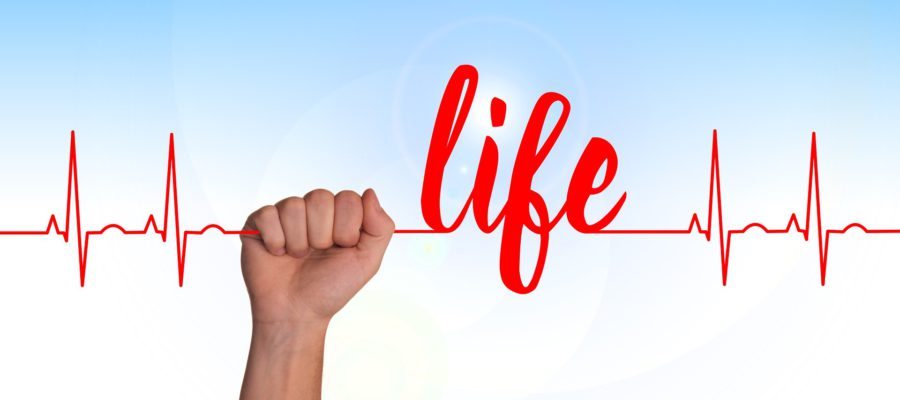At the “heart” of the Texas Heartbeat Bill is really a question of personhood and humanity. When does a person actually become a person? Does it happen automatically when they exit the birth canal? When they are viable and can live outside the uterus? When they are pain capable? When they have functioning brain waves? When they have a beating heart? The very moment of fertilization?
Whenever that all-important moment is, does it grant the new person any rights to protection? Do those rights mean that the rights of the woman carrying the new being can be restricted?
If we can’t agree on the question of personhood, does that mean that developing humans have no rights at any point until birth- or must we set a limit at some point in their development? How do we set that limit?
In the pro-life community, it’s common to see developing humans at the very earliest stages referred to as “babies,” “humans,” or “people.”
Conversely, in the pro-choice camp it’s very uncommon to see an unborn human referred to as a baby or a person in public discourse at any point until the literal act of birth. Exceptions are made when speaking to a woman who clearly wants to keep her unborn child. Then the language typically switches to pro-life verbiage- “her baby,” etc. For some, not even personal affinity to a wanted pregnancy will necessitate the linguistic switch. I once had a professor who referred to her own unborn child as “my fetus” until it was full term. Passionate pro-abortion activists I encounter will often use the hackneyed phrase “clump of cells” for the earliest (and even later) stages, and I unfortunately often also see the term “parasite” used. More mainstream pro-choice proponents will instead use the medical term “fetus” until the end of pregnancy.
Really, no one should disagree on use of the term “fetus” in a developmental sense. Zygote, blastocyst, embryo, and fetus are all correct terms for a developing baby. In fact, the ancient Latin word “fetus” just means “offspring.” At the point of the “Heartbeat Bill,” embryo is still just barely the correct medical terminology, although many people use the word “fetus” interchangeably.
My dispute (and that of most pro-lifers) is not with the word “fetus” or “embryo” but with those in the pro-choice camp who refuse to even call the fetus human. I have had people argue with me violently that a fetus is not only not human- but not even alive. I once entered an ill-fated Twitter battle with a “blue check mark” who had a law degree and 400,000 followers, who was “screaming” at me in all caps “IT’S NOT ALIVE!!!” People were retweeting her claim and liking it at an alarming rate.
If we cannot even agree that a developing being in the womb is alive, then how are we going to agree on whether it is a “person?” How can we possibly agree on when (and whether) it deserves any consideration at all?
Let me begin to bridge the gap by clarifying the pro-life position as best I can.
We believe that after fertilization, a NEW being is ALIVE. When the egg and the sperm meet, they form a new creation. It has its own DNA blueprint and its own biological sex patterns from fertilization. It is fundamentally different from any other living cell (like a sperm cell) because it is not merely a cell that is part of an organ or a body. It has its OWN cells. Unless prevented, it will continue to grow as a unique being until it becomes a fully formed baby, toddler, child, teenager, adult.
We believe that the new being forming in the womb is HUMAN. It is human from the beginning, because it is an individual and growing member of the human species. Although it is inside another human, it is not merely another body part of that human- like a kidney or a liver. It is not just one of their cells- like a sperm. It is not just a parasitic growth- like a tumor. It is not a plant. It is not a different kind of animal- like a giraffe or an ape. It is its own human- albeit a very small one- on varying stages of its journey of development.
Lastly, we believe the growing member of the human species has SOME rights merely by virtue of its inclusion in that group. We believe that location in or out of the mother’s body does not determine worth.
It is important to explain that when we say “person” we do not mean “a fully developed human.” Instead, what we mean is “a unique, developing human life.” Obviously, that life is not as complete in week 7 as it will be in month 7 or year 7, but it is the same “person” and the same individual. I was “me” when I was 20 years old, and 3 years old, and 2 months old, and 7 months in utero.
Perhaps for this reason- that the earliest human lives are not yet recognizably formed- it would be best not to use the word “baby” as liberally as we sometimes do. At the earliest stages, the words “human” or “developing baby” or “embryo” would probably be more appropriate to bring us all onto the same page. Nevertheless, the meaning is that the one developing is its own human life, and that is correct. Even the controversial word “baby” DOES become a perfectly appropriate description long before an unborn child reaches full term. If that was not so, the NICU would be full of “fetuses.”
So, is the fetus a “person?” In the sense of being human- a unique individual like no other- then yes…it is. In the sense of having its full future characteristics, it is not. It is helpful to remember, however, that our frontal lobes (the decision making centers of our brains) are not even fully developed until our mid-twenties. Lack of development does not mean lack of HUMANITY, and it does not mean lack of WORTH.
We may not agree yet on what stage constitutes full personhood or full humanity, but it is my hope that we CAN agree that it is some time well before birth. It is also my hope that this acknowledgement will allow us to have real discussions about development, pain capability, viability, and even the responsibility we have to human beings- at any stage- that we create through consensual sexual acts. There are harder questions to answer, but these are good places to start.
Continued Reading:
Pregnancy visual timeline: https://www.webmd.com/baby/interactive-pregnancy-tool-fetal-development?week=7
Fetal Development Markers from Medline Plus: https://medlineplus.gov/ency/article/002398.htm
Thanks for reading, and don't forget to Click here to Subscribe!About the Author

|
Jackie Chea is a blogger from San Antonio, Texas who holds a B.A. in Psychology and an M.A. in Community Counseling from the University of Texas at San Antonio. She writes on political and cultural issues from a conservative, religious standpoint. She lives in the Lone Star State with her husband, Nick, and their 7-year-old son, Lincoln. |


Facebook Comments